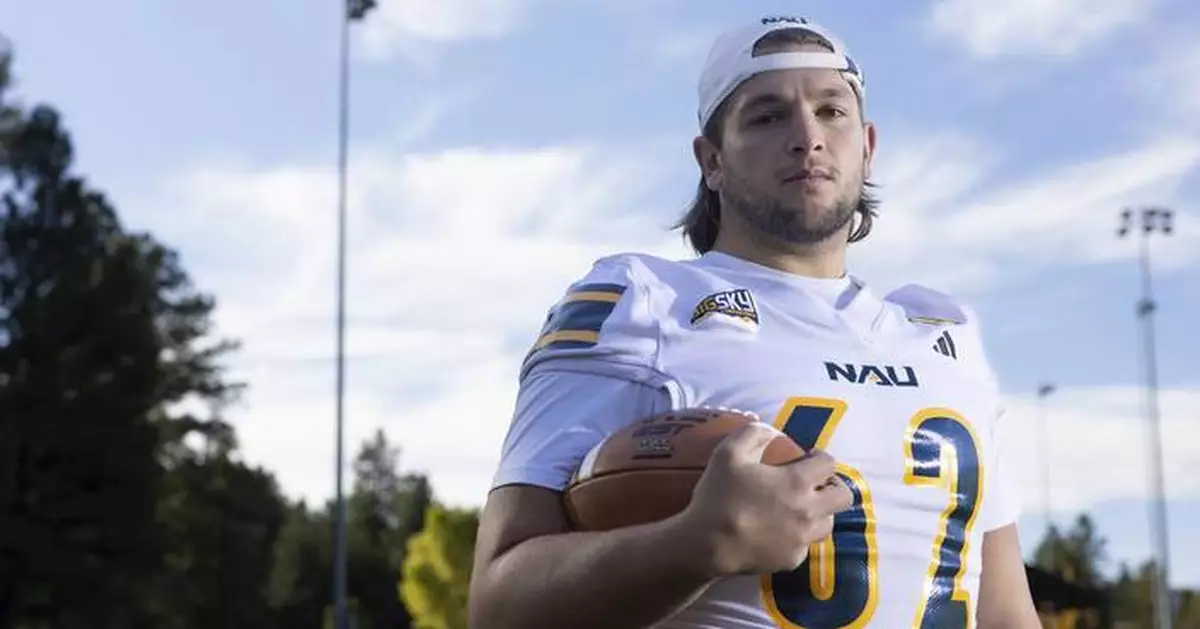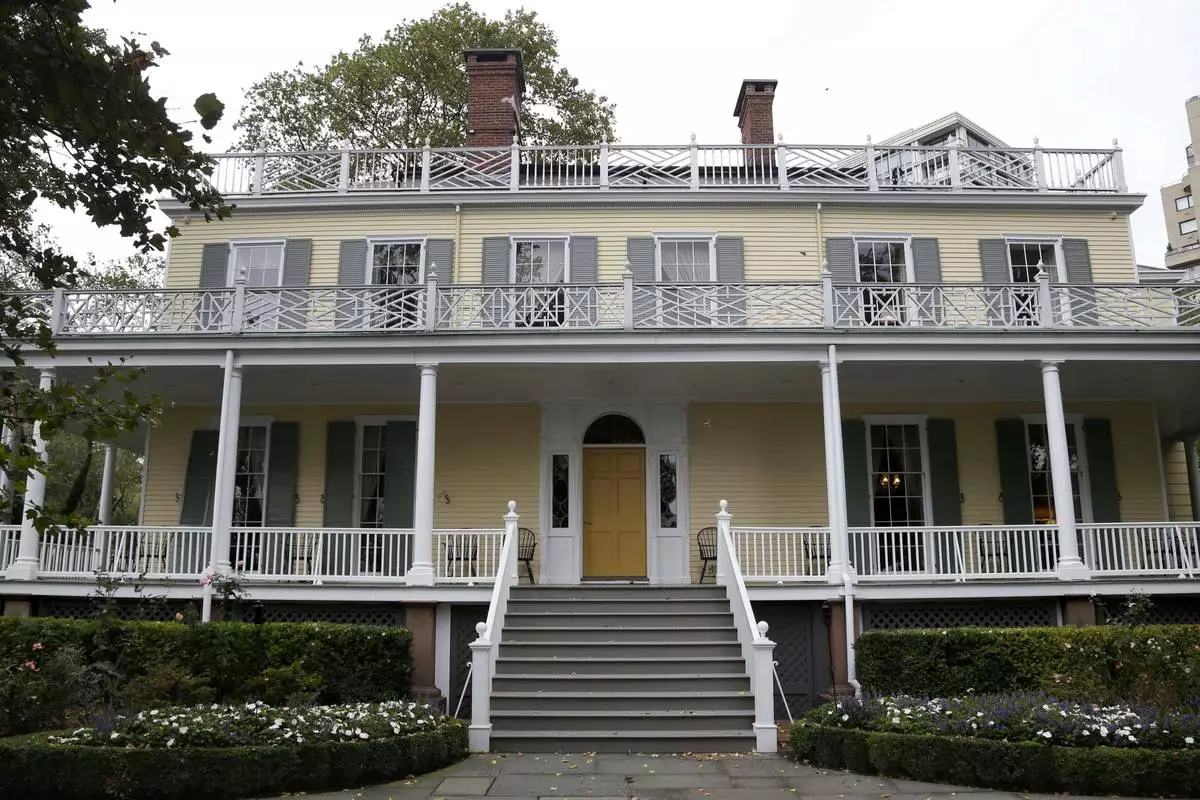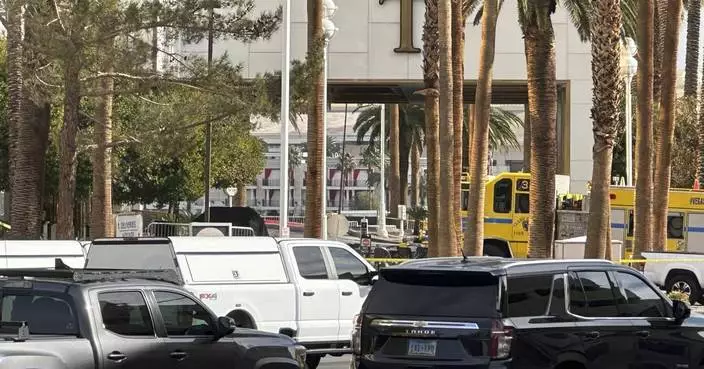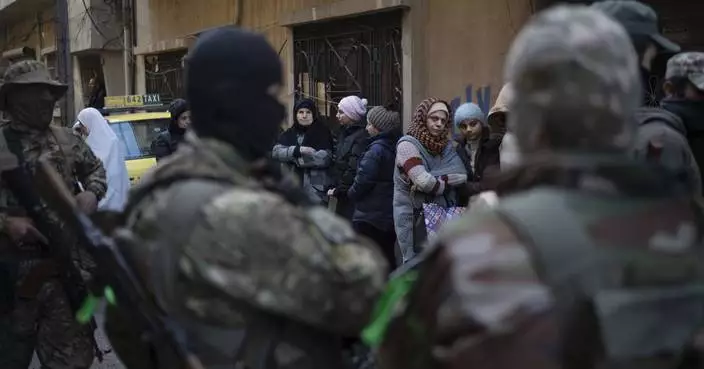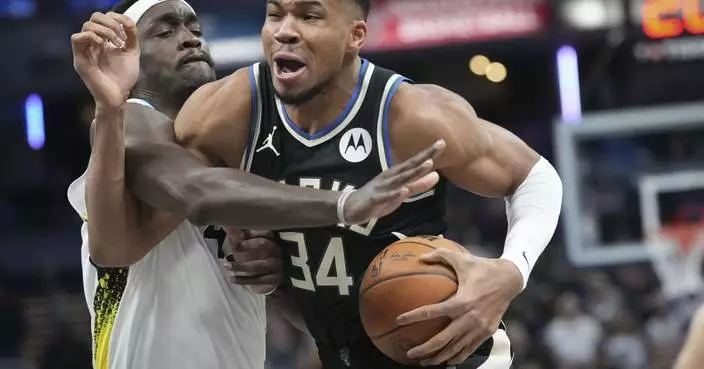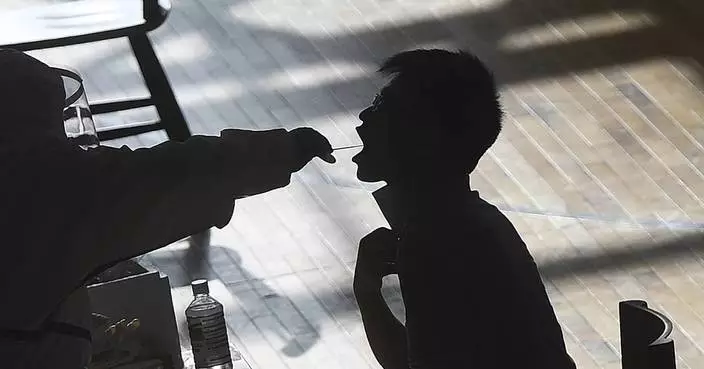PHOENIX (AP) — Sponsorship deals were far from Jonny Bottorff's mind when he transferred to Northern Arizona University on a football scholarship. As money-making opportunities for college athletes have boomed since then, the offensive lineman has earned a few hundred dollars through name, image and likeness deals, but nothing that has changed his life.
Bottorff, 23, earned an undergraduate degree and is now working on his master’s degree at the Division I school in Flagstaff, Arizona. He transferred from Missouri Western State University, a small Division II school in Saint Joseph, Missouri.
“I think the reality for most college athletes is things haven’t really changed that much. We just got an extra little bit of cash in our pockets that probably needed to happen,” Bottorff said.
For some players, money from NIL deals has transformed what it means to be a college athlete. But outside the highest-profile athletes, who now can earn millions of dollars while still in school, many players say a college degree remains the ultimate prize.
College athletes graduate at rates that are comparable to and often higher than non-athletes. For Division I schools, the NCAA last year reported data showing a record 91% of athletes are graduating.
Before the Supreme Court ruled in 2021 that U.S.-born athletes could earn money from advertisements, autographs and university boosters, college athletes were under a simple agreement with their institutions: compete in exchange for a degree.
Money received through NIL agreements has changed the equation for athletes like Washington Commanders quarterback Jayden Daniels and Chicago Sky forward Angel Reese, who leveraged their personal brands while still in college, securing endorsement deals with the likes of Reebok, Powerade and Beats by Dre.
Where academics rates as a priority varies with each individual. But several Division I athletes said in interviews the money available to them through NIL remains a small consideration compared with earning a degree and competing in the sports they love.
Anthony Leal, a guard for Indiana University's basketball team, said he is coming back as a fifth-year senior because of school, even though he received his undergraduate degree last year. He said earning a master's in business administration was always the goal.
“I’m about 70% through the program in the Kelley School of Business,” he said. “I wanted to get that degree.”
NCAA eligibility rules allow athletes five years to compete athletically across four seasons. Under the redshirt eligibility rule, many receive an athletic scholarship and practice their first year, but do not compete in games or matches. The NCAA also allowed athletes to extend their eligibility by a year if their team was affected by the pandemic.
For some athletes, NIL money is an incentive to attend and stay in college, but Leal said it's not often that athletes are completely disinterested in school.
“Every student knows that it has to be a piece of the puzzle at some level. So everyone kind of understands the value of school,” Leal said. “But, yeah, sure, some people may have other goals. There are plenty of people, maybe not at Indiana, but there are plenty of people throughout college basketball who don’t care because you’ve got NIL (money) and the transfer portal.”
The transfer portal has become a plug-and-play method for powerhouses and rebuilding programs alike. It has made it easy for athletes to switch colleges and play the next season, rather than sitting out a year under previous rules. And it has become a way for top athletes to shop around for more lucrative opportunities. UNLV quarterback Matthew Sluka, for one, walked away from the team in a dispute over a $100,000 NIL payment his agent says was promised but never paid.
The NIL market is expected to reach $1.67 billion in the 2024-2025 school year, according to an estimate by the NIL platform Opendorse. The highest earnings go to top men's basketball and football players.
Even though the NCAA now allows players to transfer without sitting out, the academic transition can be more complicated.
Ray Harrison started at Presbyterian College in 2020, but transferred in 2022 to Grand Canyon University, a private Christian university in Phoenix where he is a senior guard on the basketball team. He said NIL money wasn't a factor. It was about finding a better fit for him.
“I just came out here because this is where God led my heart. Of course, we win two (conference) championships and that changes things,” he said. But it wasn’t a smooth transition — a lot of his course credits didn’t transfer. “When I got here, I had to do some catching up.”
Trinity San Antonio, another student who transferred to Grand Canyon, previously attended California Baptist, a private university in Riverside, California. Finding a school that would accept the majority of her previously earned college credits was harder than she expected.
“Coming in as a freshman when you’re really a junior is not ideal,” said San Antonio, who also played basketball for Puerto Rico last summer in the Paris Olympics.
A shot at a college education remains a dream for many younger athletes.
Tavarius Covington, a wide receiver on his high school football team in Chicago, has ambitions of playing in college. But he said his priority is school. He hopes to pursue a business degree.
Covington took a break from football but came back to it last year, hoping it would help him become the first in his family to go to college and earn a degree, he said.
“I was watching my little brother play. We were going to his games and the family was excited for him. It made me interested in the game again,” he said. “Part of it is trying to establish a foundation for him, too, as a first-generation college student, hopefully. I want him to know there is more to look forward to coming out of high school.”
Marot reported from Indianapolis.
The Associated Press’ education coverage receives financial support from multiple private foundations. AP is solely responsible for all content. Find AP’s standards for working with philanthropies, a list of supporters and funded coverage areas at AP.org.
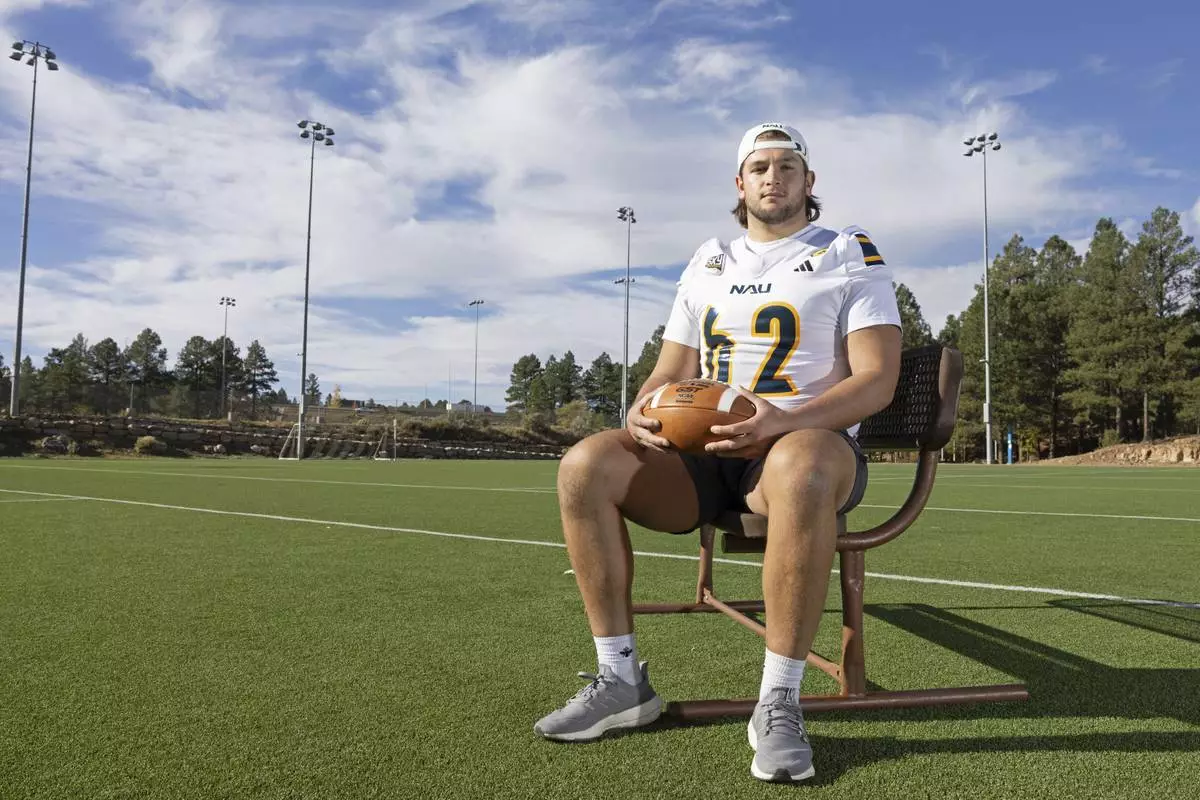
Northern Arizona University's Jonny Bottorff took advantage of new NIL money making opportunities and rebooted his college football career. Bottorff poses for a photo on the campus on NAU on Monday, Oct. 28, 2024, in Flagstaff, Ariz. (AP Photo/Josh Biggs)
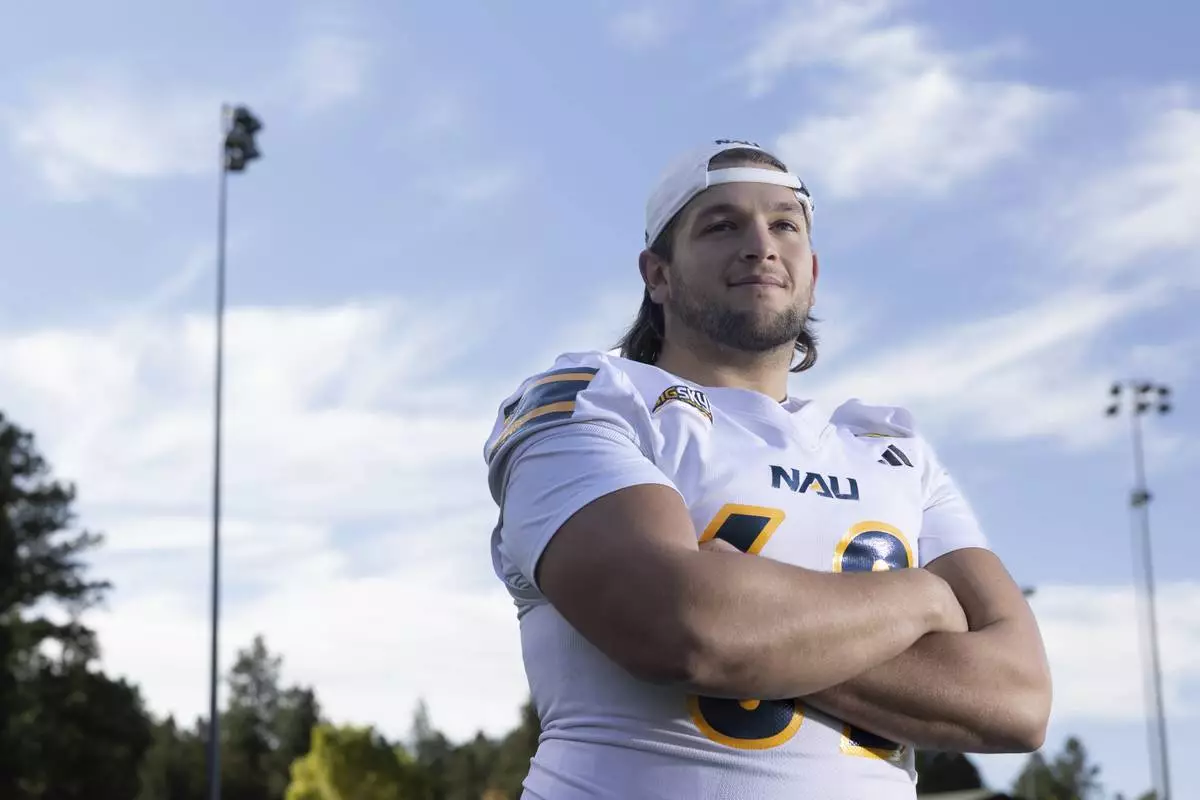
Northern Arizona University's Jonny Bottorff took advantage of new NIL money making opportunities and rebooted his college football career. Bottorff poses for a photo on the campus on NAU on Monday, Oct. 28, 2024, in Flagstaff, Ariz. (AP Photo/Josh Biggs)
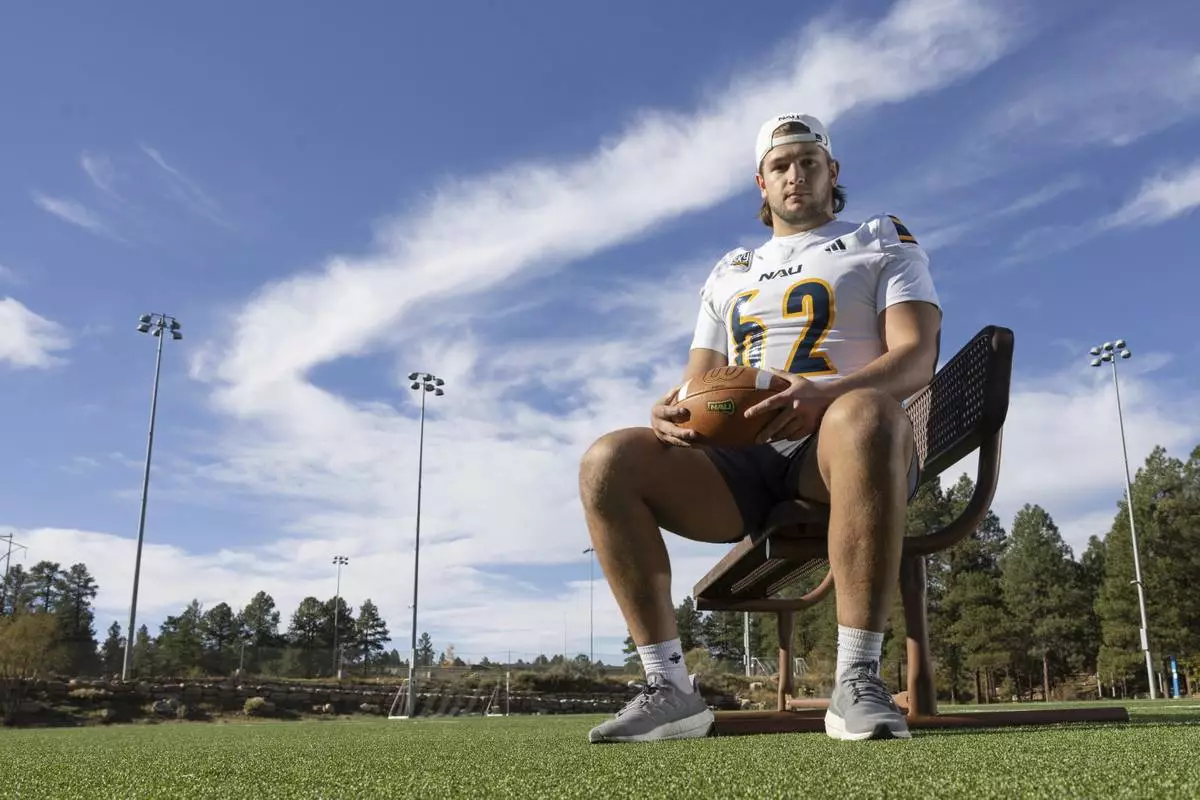
Northern Arizona University's Jonny Bottorff took advantage of new NIL money making opportunities and rebooted his college football career. Bottorff poses for a photo on the campus on NAU on Monday, Oct. 28, 2024, in Flagstaff, Ariz. (AP Photo/Josh Biggs)
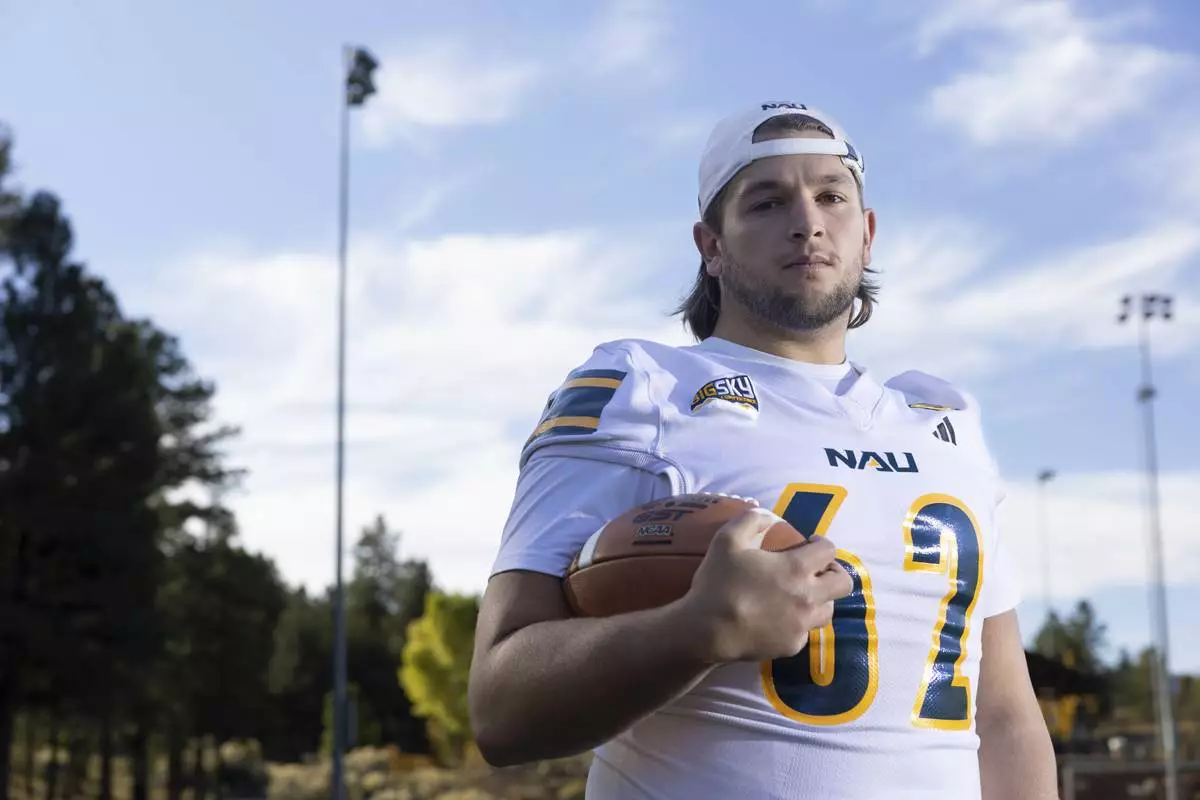
Northern Arizona University's Jonny Bottorff took advantage of new NIL money making opportunities and rebooted his college football career. Bottorff poses for a photo on the campus on NAU on Monday, Oct. 28, 2024, in Flagstaff, Ariz. (AP Photo/Josh Biggs)


